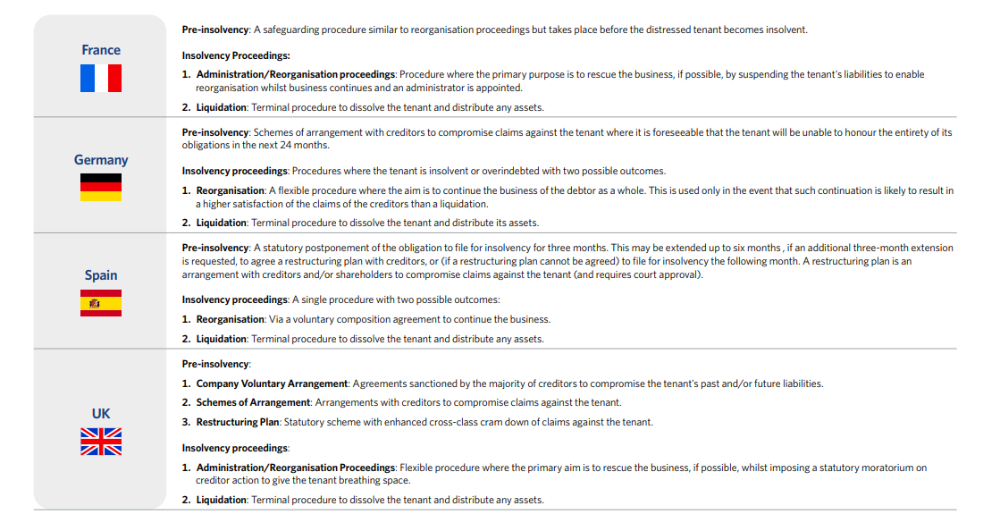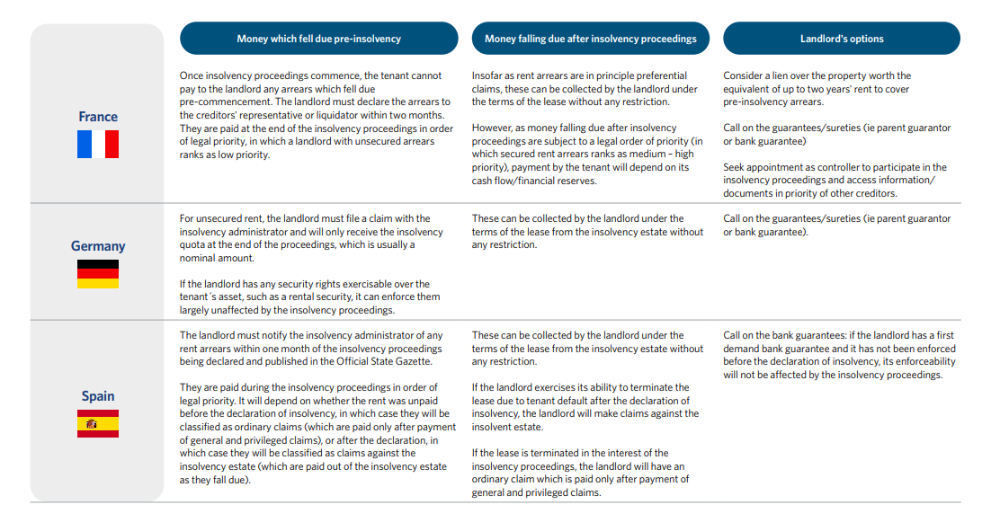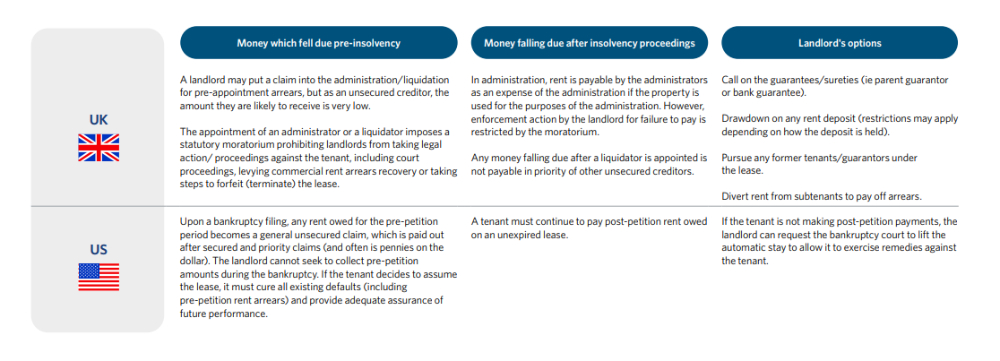- within Transport, Media, Telecoms, IT, Entertainment and Family and Matrimonial topic(s)
- with Inhouse Counsel
- in European Union
- with readers working within the Law Firm industries
Multi-jurisdiction guide: tenant insolvency
The global commercial real estate market paints a varied picture, with certain jurisdictions and sectors recovering quicker than others from the COVID-19 pandemic and continuing geopolitical uncertainty. Higher interest rates and leveraged balance sheets means many landlords are keeping a close eye on the financial health of their tenants. The legal remedies open to landlords of commercial property vary by jurisdiction. Local expertise is crucial, particularly as insolvency processes can be fast-paced and landlords need to respond quickly to safeguard their interests. This guide focuses on five jurisdictions - France, Germany, Spain, the UK and the US, where Herbert Smith Freehills Kramer LLP are ideally placed to advise landlord clients on these issues. We provide an overview and comparison of the insolvency processes that apply in each jurisdiction to aid landlords and investors in the commercial real estate market looking to expand into these areas. In particular, we consider:
- What are the main insolvency/restructuring processes a landlord may encounter in relation to their tenant?
- What remedies does a landlord have for the recovery of rent arrears and how are these impacted by insolvency proceedings?
- How can a landlord regain possession of their property during insolvency proceedings?
- What is the impact of a tenant's insolvency on undertenants/guarantors?
We have leading teams in each of the jurisdictions who can advise on the issues described in this guide. Please see the key contact details at the end of this document
What are the main insolvency/restructuring processes a landlord may encounter in relation to their tenant?

What are the main insolvency/restructuring processes a landlord may encounter in relation to their tenant?

What remedies does a landlord have for the recovery of rent arrears and how are these impacted by insolvency proceedings?

What remedies does a landlord have for the recovery of rent arrears and how are these impacted by insolvency proceedings?

To view the full article click here
The content of this article is intended to provide a general guide to the subject matter. Specialist advice should be sought about your specific circumstances.








